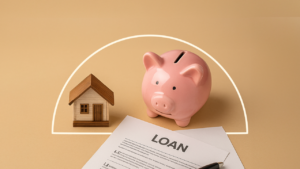How to get a debt consolidation loan in 6 steps

Key takeaways
- Before applying, check your credit score, decide how much you want to consolidate and crunch some numbers.
- It’s crucial to compare lenders and pick the one offering the best terms for your financial situation.
- If a debt consolidation loan doesn’t make sense, adjust your budget or explore balance transfer credit cards.
- Build a strategy for handling your credit use so you don’t need to keep consolidating debt in the future.
If you’re ready to get a debt consolidation loan, you’ll need to learn how to qualify first. To get the best rate and terms, it’s best to follow specific steps. Your credit score will determine whether you’re eligible for a low-interest debt consolidation loan rate or not.
If your score is low because of maxed-out credit cards, see if you qualify for debt consolidation with bad credit. You may need to shop around a bit more for a competitive rate, but it could be worth it if your new score takes you out of the bad-credit category.
Knowing how to get a debt consolidation loan and what the alternatives are could put you on a better financial footing and help you achieve longer-term financial goals.
1. Check your credit score
There are a few ways you can check your credit score. Some banks and credit issuers, like SoFi, allow you to view your score for free if you have an account with the company.
Your credit score carries more weight than any other factor when getting a debt consolidation loan. You’ll typically need a credit score of at least 740 to qualify for a loan with a highly competitive interest rate.
Some lenders offer loans for bad credit, but the annual percentage rate (APR) will likely be higher. Depending on how low your score is, you may need to shop around more to find the best bad credit loan rates.
Some lenders, like Upstart, offer innovative approaches, such as qualifying based on your educational or career background instead of strictly evaluating applications based on credit scores and history. You may have to provide extra documents regarding your degree or current position, but it may be worth the effort if it helps you consolidate multiple debts.
2. List out your debts and payments
Create a list of all the debt accounts you plan to consolidate — including the amounts you owe, interest rates and minimum monthly payments. Then, add up the balances to determine the loan amount you’ll need to consolidate your debt.
After that, add up all your minimum payment amounts to see how much you’re currently paying every month. This will help you determine if a debt consolidation loan will cost more or less on a monthly basis.
A debt consolidation loan can help your credit score in two major ways. First, combining multiple debts into one new fixed-rate loan reduces the risk of you dropping a payment when dealing with multiple due dates. Second, paying off credit card debt directly reduces your credit utilization ratio, which could boost your scores quickly — if you avoid future credit card use.
3. Run some debt consolidation scenarios
It’s a good idea to crunch figures ahead of starting the application process. This way, you have an idea of what you can and can’t afford ahead of time. Ultimately, the lender will determine what you qualify for, but seeing how an example might play out can be helpful to set your expectations for what you’ll find.
Use a personal loan calculator to see what kind of payment you’re looking at on the new loan. Try longer terms of five years or more for lower payments. Shorter terms of three years or less will save you money on total interest.
Bankrate numbers in action
Anna has $10,000 worth of credit card debt at an average 20 percent APR. She can afford the minimum payments, but the interest keeps on pushing the balances back up.
After reading some TransUnion data, she figures out she’s most likely eligible for a personal loan rate of about 18 percent given she has fair credit. Anna also thinks she can qualify for a three- or five-year term, and wants to see how much she’d save compared to making the minimum payments on her credit cards.
| Loan details | Minimum credit card payment | 3-year debt consolidation loan | 5-year debt consolidation loan |
| Monthly payment | $167.22 | $361.52 | $253.93 |
| Total interest paid | $47,856.58 | $3,014.86 | $5,236.06 |
| Months until paid in full | 346 | 36 | 60 |
Anna wants to be able to save as much interest as possible without a big jump in payment. The five-year debt consolidation loan makes the most sense because it saves her over $42,600 in interest charges, and increases her monthly payment by less than $100.
4. Compare lenders
When comparing debt consolidation lenders, consider the APRs, fees and any other perks they offer borrowers. Bankrate is a good place to start since it can help you compare multiple lenders at once.
One Bankrate expert’s shopping journey found that the lowest personal loan rates are typically offered to borrowers with excellent credit scores of 780 or higher for short terms of 36 months or less.
You may also want to check with your current bank or credit union if it offers personal loans for debt consolidation. Compare your financial institution’s rates and terms to those offered by other top lenders.
Utilize resources like CFPB’s complaint database, Trustpilot and the Better Business Bureau to determine whether a lender is reputable.
Bankrate’s take: If the lenders offer online prequalification tools, consider using them to gauge your approval odds. You can complete the prequalification process to view potential loan offers and interest rates without negatively impacting your credit score.
5. Apply for the loan
Prepare the necessary documentation that the lender requires before starting the full application. Although this varies by lender, you’ll typically need to provide the following:
- Proof of income. W-2s, 1099s, pay stubs or tax returns.
- Proof of identity. Birth certificate, driver’s license, state-issued ID, passport or other official ID.
- Proof of address. Utility bill, lease or rental agreement, bank or credit card statement or voter registration card.
- Proof of banking account. Many lenders use a read-only access system, like Plaid, to connect to the bank you want your loan funds deposited into. They may also use this as a way to verify your income through direct deposits.
Once you have your documents handy, submit the loan application. Many lenders allow you to apply online, receive a quick decision and upload the supporting documents to issue final approval. But if you’re applying with a traditional bank or credit union, you may be required to visit a physical branch to apply, and it could take longer to receive a lending decision.
Although the loan process at most lenders is mostly digital, you may encounter delays if you’re slow uploading a pay stub or other documents. You could be on the road to debt consolidation within one business day of approval if you get everything the lender needs quickly.
6. Close the loan and make payments
Upon approval, review and clarify the loan terms. The lender will process the file for closing and disburse the loan proceeds to your bank account directly. Unless you choose a debt consolidation lender that pays your creditors directly, you’ll need to pay each creditor with the funds you receive.
Keep making your scheduled payments until each of your creditors shows a zero-dollar statement balance. You’re still responsible for regular payments until the balance is paid in full.
Debt consolidation loan lenders may charge fees as high as 12 percent of your loan amount. The fees are deducted from the amount you receive. Some lenders offer no-fee debt consolidation loans, but you’ll typically need a higher credit score to qualify.
How to qualify for a debt consolidation loan
To qualify for a debt consolidation loan, you’ll need to meet lenders’ income and credit requirements. Some lenders specialize in bad credit debt consolidation loans, while others cater to excellent credit borrowers.
You’ll also need to collect financial documents, provide banking information and decide which debts you want to pay off. Some debt consolidation lenders will pay your creditors directly, but you’ll need to give them contact information for each creditor if you want to take advantage of that perk.
You can get a debt consolidation loan from most banks, credit unions and online lenders. You can also check rates, terms and eligibility requirements at several lenders in one place on a marketplace lending site like Bankrate. Qualifying standards vary by institution, but there are a few steps you can take — like checking your credit, calculating your total monthly debt and comparing lenders — to increase your chances of approval.
Alternatives to debt consolidation loans
There are also a number of alternatives to debt consolidation loans you can consider before applying.
- Rebalance your budget. Track your spending for a few weeks and see if you can reduce some costs and use the savings toward debt repayment. Consider trimming down on subscription services or switching to a cheaper internet or cell phone plan.
- See if you can change bill due dates. If you’ve had some near-misses on monthly payments because of random due dates, ask the creditor if you can change the due date so it matches most of your other bills.
- Use a balance transfer credit card. Qualifying for a balance transfer card with a 0 percent introductory rate allows you to consolidate all of your credit card balances into one account, leading to faster payoff and savings on interest — as long as you pay the balance before the promotional period ends.
- Home equity loan. If you’re a homeowner, you can borrow against the equity you have in your property, often at a lower rate than you’d pay on a debt consolidation loan. You can also spread the payment out over 30 years, which may help reduce payments. However, a major disadvantage of a home equity loan is that if you default, the lender can foreclose on your home.
- Seek third-party help. If you have a significant amount of debt — over $10,000 — consider seeking help from a credit counseling agency or debt relief company. Either could help you consolidate your debt and negotiate with your creditors to get you more favorable terms, though you may find a nonprofit credit counselor to be more cost-effective.
- Savings. Tapping your savings to pay more than the minimum monthly payment on your debt can also help you get out of debt faster and save money on interest charges. If that drains your emergency savings, consider splitting up your debt pay down with some savings and a smaller debt consolidation loan.
If you’re in a position where you need to consolidate debt, it’s important to honestly examine how you’re spending money. If the swipe-and-go ease of credit cards is an ongoing issue, stow them away after your debt consolidation pays them off. Otherwise, you’re likely to end up with multiple personal loans, which could add even more strain to your budget and cause additional credit damage.
Bottom line
Getting a debt consolidation loan is a relatively easy process if you have a solid job and a fair credit score. You’ll boost your approval odds if you’ve taken some basic steps ahead of time to make sure you qualify for a personal loan.
Make sure your budget is ready for a regular fixed monthly payment. There is no minimum payment option with a personal loan. Pick the shortest term you can afford so you’re debt-free faster.
If your credit score jumps a bunch, you can refinance your personal loan to a lower rate in the future — typically with no prepayment penalties of any kind. A debt consolidation loan could be a great step in the right direction to ditching overwhelming credit card debt.
Frequently asked questions
Why we ask for feedback Your feedback helps us improve our content and services. It takes less than a minute to complete.
Your responses are anonymous and will only be used for improving our website.







